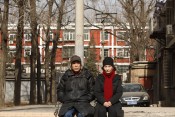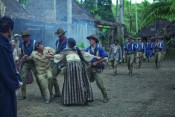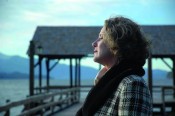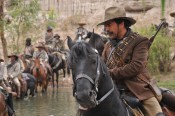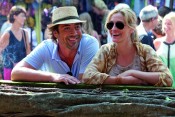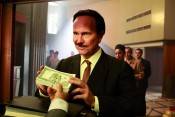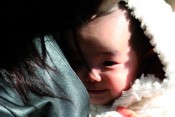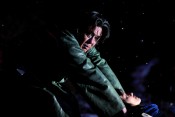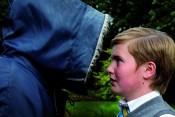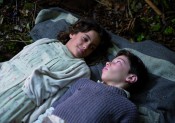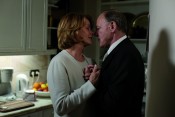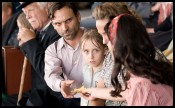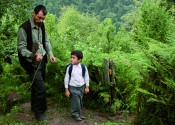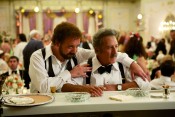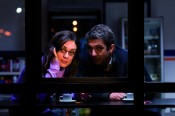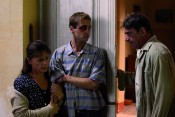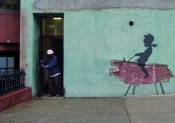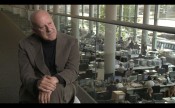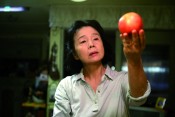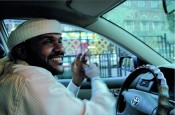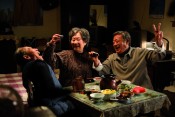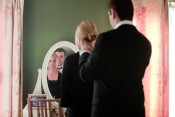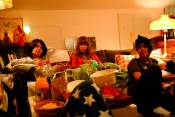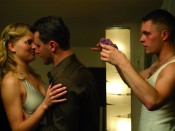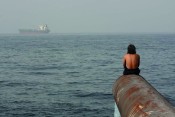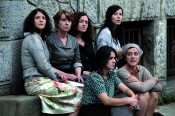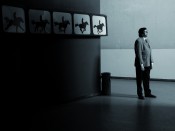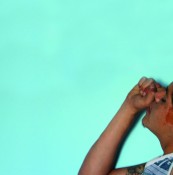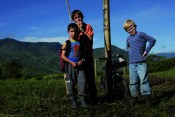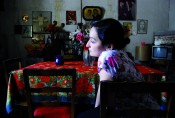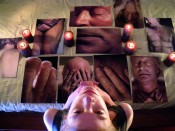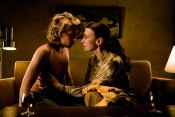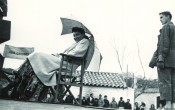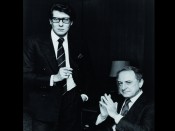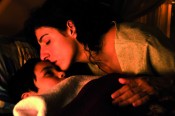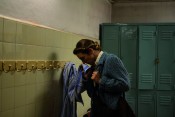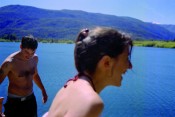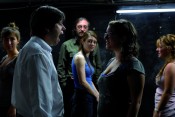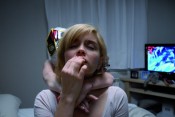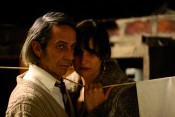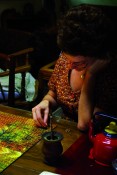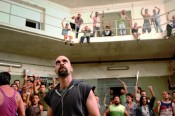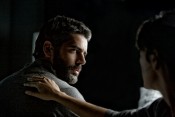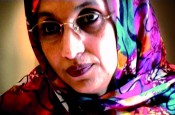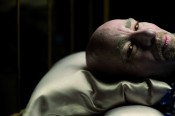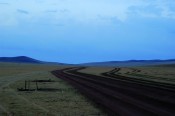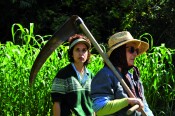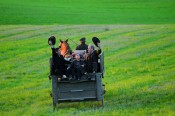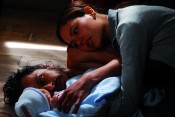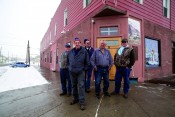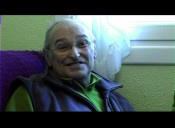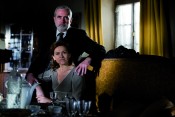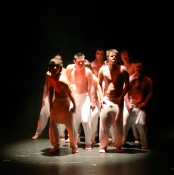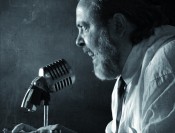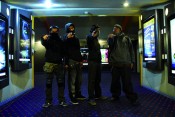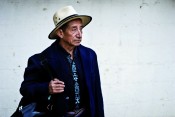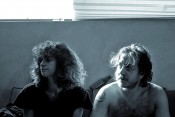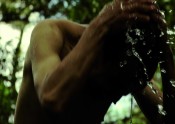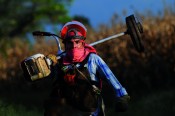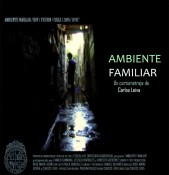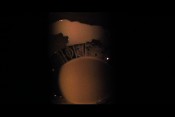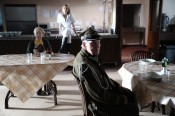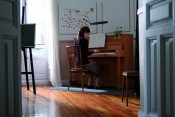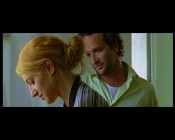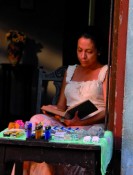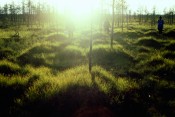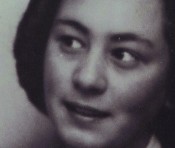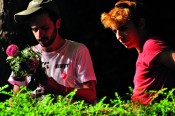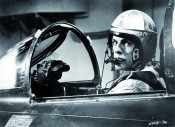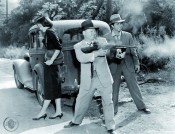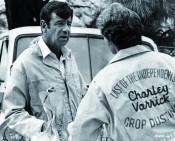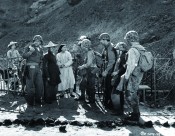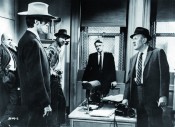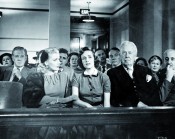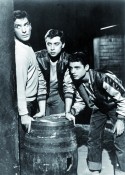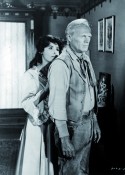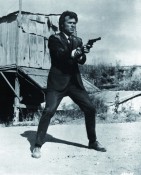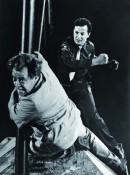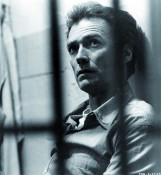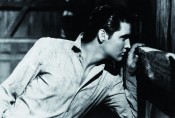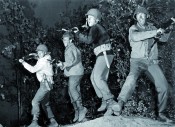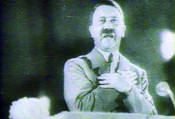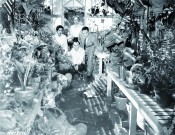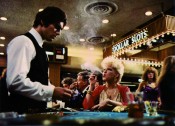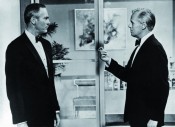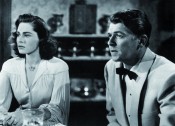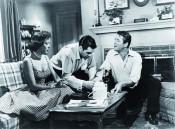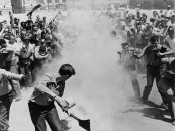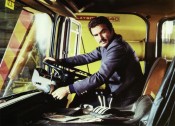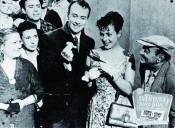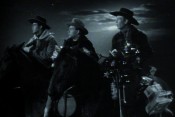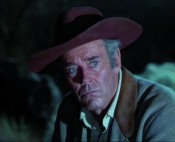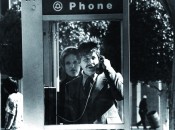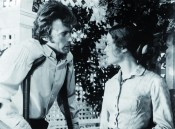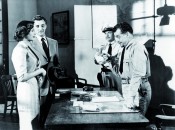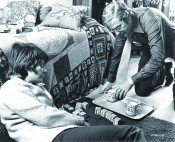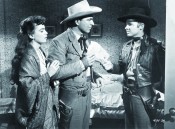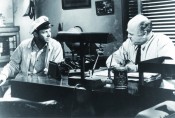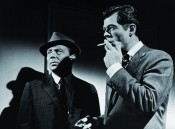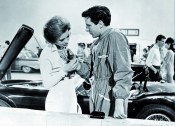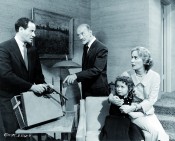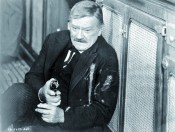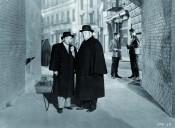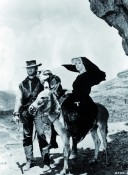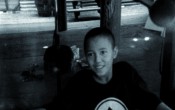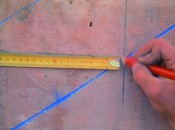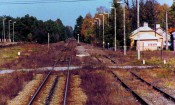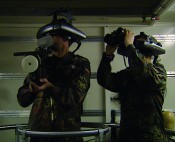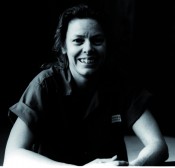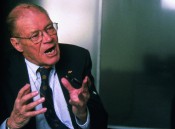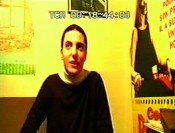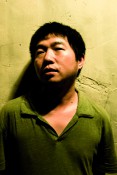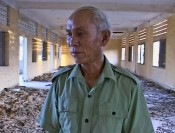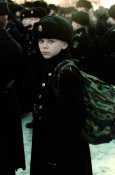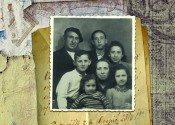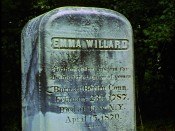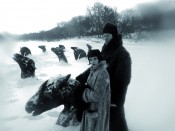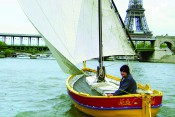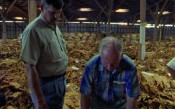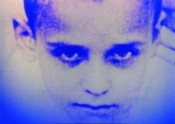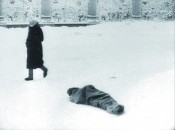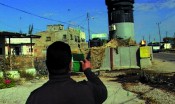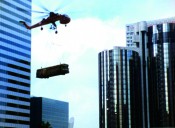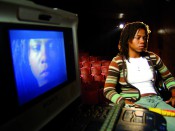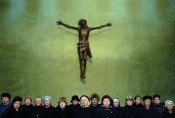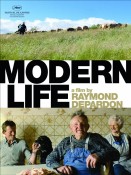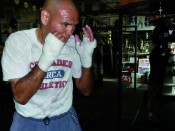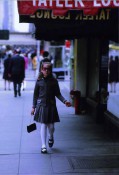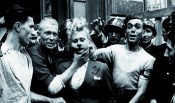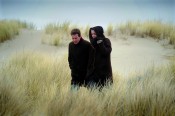
By DAVE KEHR
Arthur Penn, the stage, television and motion picture director whose revolutionary treatment of sex and violence in the 1967 film “Bonnie and Clyde” transformed the American film industry, died Tuesday night, the day after he turned 88.
His death was confirmed by Evan Bell, Mr. Penn’s business manager for 25 years. No other details were immediately provided.
A pioneering director of live television drama in the 1950s and a Broadway powerhouse in the 1960s, Mr. Penn developed an intimate, spontaneous and physically oriented method of directing actors that allowed their work to register across a range of mediums.
In 1957, he directed William Gibson’s television play “The Miracle Worker” for the CBS series “Playhouse 90” and earned Emmy nominations for himself, his writer and his star, Teresa Wright. In 1959, he restaged “The Miracle Worker” for Broadway and won Tony Awards for himself, his writer and his star, Anne Bancroft. And in 1962, he directed the film version of Mr. Gibson’s text, which won the best actress Oscar for Bancroft and the best supporting actress Oscar for her co-star, Patty Duke, as well as earning nominations for writing and directing.
Mr. Penn’s direction may also have changed the course of American history. He advised Senator John F. Kennedy during his watershed television debates with Richard M. Nixon in 1960 (and directed the broadcast of the third debate). Mr. Penn’s instructions to Kennedy — to look directly into the lens of the camera and keep his responses brief and pithy — helped give the candidate an aura of confidence and calm that created a vivid contrast to his more experienced but less telegenic Republican rival.
But it was as a film director that Mr. Penn left his mark on American culture, most indelibly with “Bonnie and Clyde.”
“Arthur Penn brought the sensibility of ’60s European art films to American movies,” the writer-director Paul Schrader said. “He paved the way for the new generation of American directors who came out of film schools.”
Many of the now-classic films of what was branded the “New American Cinema” of the 1970s — including “Taxi Driver,” directed by Martin Scorsese and written by Mr. Schrader, and “The Godfather,” directed by Francis Ford Coppola — would have been unthinkable without “Bonnie and Clyde” to point the way.
Loosely based on the story of two minor gangsters of the 1930s, Bonnie Parker and Clyde Barrow, “Bonnie and Clyde” had been conceived by its two novice screenwriters, Robert Benton and David Newman, as an homage to the rebellious sensibility and disruptive style of French New Wave films like François Truffaut’s “Shoot the Piano Player” and Jean-Luc Godard’s “Breathless.”
In Mr. Penn’s hands, it became something even more dangerous and innovative — a sympathetic portrait of two barely articulate criminals, played by Mr. Beatty and a newcomer, Faye Dunaway, that disconcertingly mixed sex, violence and hayseed comedy, set to a bouncy bluegrass score by Lester Flatt and Earl Scruggs. Not only was the film sexually explicit in ways unseen in Hollywood since the imposition of the Production Code in 1934 — when Bonnie stroked Clyde’s gun, the symbolism was unmistakable — it was violent in ways that had never been seen before. Audiences gasped when a comic bank robbery climaxed with Clyde’s shooting a bank teller in the face with a shotgun, and were stunned when this attractive outlaw couple died in a torrent of bullets, their bodies twitching in slow motion as their clothes turned red with blood.
Reporting on the film’s premiere on the opening night of the Montreal Film Festival in 1967, Bosley Crowther, the chief film critic for The New York Times, was appalled, describing “Bonnie and Clyde” as “callous and callow” and “slap-happy color film charade.” Worse, the public seemed to love it. “Just to show how delirious these festival audiences can be,” Mr. Crowther wrote, “it was wildly received with gales of laughter and given a terminal burst of applause.”
Similar reactions by other major critics followed when the film opened in the United States a few weeks later. The film, promoted by Warner Brothers with the memorable tag line, “They’re young. They’re in love. They kill people,” floundered at first but soon found an enthusiastic audience among younger filmgoers and won the support of a new generation of critics. “A milestone in the history of American movies,” wrote Roger Ebert in The Chicago Sun Times. Pauline Kael, writing her first review for The New Yorker, described it as an “excitingly American movie,” although she disliked Ms. Dunaway’s performance.
“Bonnie and Clyde” was nominated for 10 Oscars but won only two (for Burnett Guffey’s cinematography and Estelle Parson’s supporting performance), reflecting the Hollywood establishment’s ambivalence over a film that seemed to point the way out of the creative paralysis that had set in after the end of the studio system while betraying all the values — good taste and moral clarity — the studios held most dear.
But the breach had been opened: “Bonnie and Clyde” was followed by “Easy Rider,” “The Wild Bunch,” “The Graduate” and a host of other youth-oriented, taboo-breaking films that made mountains of money for Hollywood. Mr. Penn was perceived as a major film artist on the European model, opening the way for a group of star directors — including Robert Altman, Terrence Malick, Bob Rafelson and Hal Ashby — who were able to work with comparative artistic freedom through the next decade. The “film generation” had arrived.
Arthur Penn was born on Sept. 27, 1922 in Philadelphia to parents of Russian-Jewish heritage. His father, a watchmaker, and his mother, a nurse, divorced when he was three, and Arthur and his brother Irving (who would achieve fame as a photographer) went to live with their mother in New York and New Jersey, changing homes and schools frequently as she struggled to make a living.
Arthur returned to Philadelphia to live with his father when he was 14 and became interested in theater while attending high school. He joined the Army in 1943 and, while stationed at Fort Jackson in South Carolina, organized a theater troupe with his fellow soldiers; later, while stationed in Paris, he performed with the Soldiers Show Company.
After the war he took advantage of the G.I. Bill to attend the famously unconventional Black Mountain College in North Carolina, where his classmates included John Cage, Merce Cunningham and Buckminster Fuller. He went on to study at the Universities of Perugia and Florence in Italy, and returned to the states in 1948. Intrigued by the new, psychologically realistic school of acting that had grown out of the teachings of Konstantin Stanislavski — broadly known as “The Method” — he studied with the Actors Studio in New York and with Stanislavski’s rebellious disciple, Michael Chekhov, in Los Angeles.
Back in New York, Mr. Penn landed a job as a floor manager at NBC’s newly opened television studios. In 1953, an old Army buddy, Fred Coe, gave him a job as a director on “The Gulf Playhouse,” also known as “First Person,” an experimental dramatic series in which the actors directly addressed the camera. The series, broadcast live, introduced him to many of the writers who would go on to make their names in the television drama of the 1950s, including Robert Alan Aurthur, Paddy Chayefsky and Horton Foote. Of Mr. Penn’s first effort, “One Night Stand,” broadcast on July 31, 1953, Val Adams wrote in The New York Times, “Robert Alan Aurthur did the script and Arthur Penn directed. If these and others continue their good work, there is still a great deal of promise in the half-hour TV drama.”
As Mr. Coe moved on to the expanded formats of “The Philco-Goodyear Television Playhouse” and “Playhouse 90,” he took Mr. Penn with him. His “Playhouse 90” production of William Gibson’s “The Miracle Worker,” starring Patricia McCormack as Helen Keller and Teresa Wright as the blind girl’s determined teacher, Annie Sullivan, was shown on Feb. 7, 1957, and earned glowing reviews for both Mr. Gibson and Mr. Penn. Their television success allowed Mr. Penn and Mr. Gibson to return to the original arena of their ambitions, Broadway. With Fred Coe producing, they mounted Mr. Gibson’s play “Two for the Seesaw,” a two-hander about a Midwestern businessman (Henry Fonda) contemplating an adventure with a New York bohemian (Anne Bancroft). It was an immediate success upon its opening in January 1958.
Sensing themselves on a roll, Mr. Penn and Mr. Coe decided to tackle Hollywood. With Mr. Coe producing, Mr. Penn directed his first film, “The Left-Handed Gun,” for Warner Brothers. Based on a Gore Vidal television play adapted by Leslie Stevens, the project was an extension of the “Playhouse 90” aesthetic: a low-budget, black-and-white western about a troubled, inarticulate young man (Paul Newman, in a performance stamped with Actors Studio technique) who happened to be Billy the Kid.
As the critic Robin Wood wrote in his 1969 book on Mr. Penn, “The Left-Handed Gun” provides “a remarkably complete thematic exposition of Penn’s work.” Here already is the theme of the immature, unstable outsider who resorts to violence when he is rejected by an uncaring establishment — a configuration that Mr. Penn would return to again and again in his mature work.
This time, however, fortune did not smile on Mr. Penn. Warner Brothers released “The Left-Handed Gun” directly to neighborhood theaters, where it earned mediocre reviews (“Poor Mr. Newman seems to be auditioning alternately for the Moscow Art Players and the Grand Ole Opry,” Howard Thompson wrote in The Times) and quickly sank from view.
Luckily, Mr. Penn had a back-up plan. Returning to New York, he mounted “The Miracle Worker” for Broadway with Anne Bancroft as Annie Sullivan and the 13-year-old Patty Duke as Helen Keller. Mr. Penn’s highly physical approach made the show a sensation — “One of the most ferocious slugging matches in town has been waged nightly for the past eight weeks between an amateur fighter from the Bronx, standing 5 feet 6 inches tall and weighing 122 pounds, and a novice from Manhattan, standing 4 feet 4 3/4 inches tall and weighing 60 pounds,” wrote Nan Robertson in a Times story about the play — and the production went on to run for 719 performances.
During the run of “The Miracle Worker,” Mr. Penn found time to stage three more hits: Lillian Hellman’s “Toys in the Attic,” with Jason Robards, Jr. and Maureen Stapleton; “An Evening with Mike Nichols and Elaine May,” in which the popular comedy team made their Broadway debut, and “All the Way Home,” an adaptation of James Agee’s novel “A Death in the Family,” with Arthur Hill and Colleen Dewhurst.
When Hollywood beckoned again, Mr. Penn returned in strength in 1962 to direct the film version of “The Miracle Worker.” This time the film was a popular and critical success, earning Oscars for Ms. Bancroft and Ms. Duke and nominations for Mr. Penn, Mr. Gibson and the costume designer Ruth Morley.
But Mr. Penn was dismissed from his next project, “The Train,” after a few days of filming by its temperamental star, Burt Lancaster. His subsequent film, “Mickey One,” an absurdist drama about a nightclub comedian (Warren Beatty) on the run from the Mafia, wore its European art film ambitions on its sleeve and baffled most American critics, though it earned the admiration of the iconoclastic young critics of Cahiers du cinema, the influential film magazine that championed the French New Wave.
Mr. Penn had another frustrating experience with “The Chase” (1966), a multi-character drama set in a small Texas town where the local sheriff (Marlon Brando) is on the lookout for a local boy (Robert Redford) who has escaped from a state prison. Adapted from a Lillian Hellman piece by the screenwriter Horton Foote, the morally complex drama was taken away from Mr. Penn and extensively re-edited by its producer, Sam Spiegel. But “The Chase,” even in its mutilated form, remains one of Mr. Penn’s most personal and feverishly creative works.
An embittered Mr. Penn returned to Broadway, where he staged the thriller “Wait Until Dark” with Lee Remick and Robert Duvall. But he was eventually induced to return to Hollywood, summoned by his “Mickey One” collaborator, Warren Beatty, to take over the direction of a project originally offered to François Truffaut.
“Frankly, I wasn’t all that certain I wanted to make another film,” Mr. Penn wrote in an essay for Lester D. Friedman’s 2000 Cambridge University Press anthology, “Arthur Penn’s ‘Bonnie and Clyde.” “And if I were to do another film, I felt it should be a story with a broader social theme than a flick about two thirties bank robbers whose pictures I remembered as a couple of self-publicizing hoods holding guns, plastered across the front page of The Daily News.”
But Mr. Beatty, who had acquired an option on the property, persuaded Mr. Penn to join the project with promises of autonomy and the rare privilege of having the final cut.
Working with the screenwriters, Robert Benton and David Newman, Mr. Penn eliminated a sexual triangle among Bonnie, Clyde and their disciple C. W. Moss — a composite character eventually played by Michael J. Pollard — that he felt was too sophisticated for the characters. “They were farmers or children or farmers, bumpkins most of them,” Mr. Penn wrote of the 1930s gangsters who inspired the story. “They certainly did not seem to be figures that belonged in complicated sexual arrangements.” He added, “ We talked and moved in the direction of a simpler tale, one of narcissism, of bravura, and, at least from Clyde’s point of view, of sexual timidity.”
“We had the tone of the film,” Mr. Penn wrote. “It was to start as a jaunty little spree in crime, then suddenly turn serious, and finally arrive at a point that was irreversible.”
After the astonishing success of “Bonnie and Clyde,” Mr. Penn had his choice of projects. But rather than move on to big-budget Hollywood prestige productions, Mr. Penn decided to make a small, personal film, very much in the spirit of the American Independent Cinema that would emerge in the 1980s.
“Alice’s Restaurant,” released in 1969, revisited many of the social outsider themes of “Bonnie and Clyde,” but in a low key, gently skeptical, non-violent manner. Starring Arlo Guthrie and based on his best-selling narrative album about a hippie commune’s brush with the law, the film did not approximate the impact of “Bonnie and Clyde” but stands as one of Mr. Penn’s most engaging works, a warm and deeply felt miniature.
By contrast, Mr. Penn seemed to lose his way among the epic ambitions of 1970’s “Little Big Man,” a sprawling, ironic, anti-western that tried to explain American imperialism through the excessively abstract figure of Jack Crabb (Dustin Hoffman), the sole (though fictional) non-Indian survivor of the Battle of the Little Bighorn, as he bumbled through a glumly revisionist version of the Old West.
After that film’s disappointing reception, Mr. Penn laid low for a while, contributing only a segment to the 1973 documentary on the Munich Olympics, “Visions of Eight,” before returning to feature filmmaking in 1975 with the modest thriller “Night Moves.” Starring Gene Hackman as a Hollywood private detective who loses himself on a case in the Florida Keys, the film made explicit the existential despair long contained in the American film noir, ending on a daring note of irresolution.
But the audiences of 1975 were losing patience with daring notes, flocking instead to the popcorn pleasures of Steven Spielberg’s “Jaws,” that summer’s runaway hit. Suddenly, Mr. Penn’s kind of artistically ambitious, personal filmmaking was out of style. The director returned to Broadway, where he staged a pair of successes, Larry Gelbart’s “Sly Fox” with George C. Scott and William Gibson’s “Golda” with Anne Bancroft.
Mr. Penn’s subsequent film career witnessed violent ups and downs. A reunion with Marlon Brando for “The Missouri Breaks” (1976) yielded a surreal western with moments of brilliance but a meandering tone. With “Four Friends” (1981), Mr. Penn returned to the subjects of youthful uncertainty and social upheaval, working from a semi-autobiographical script by Steve Tesich. “It’s a film for which I had a lot of sympathy,” Mr. Penn told Richard Schickel in 1990, “about adolescence and a kid who was an immigrant to the United States and his inability to function with his father. In that sense there are lots of personal details that correlate with my own life.”
Less committed were “Target” (1985), a paranoid political thriller with Gene Hackman and Matt Dillon that uneasily matched a father-son conflict with conventional suspense, and “Dead of Winter” (1987), a partial remake of Joseph H. Lewis’s 1945 gothic thriller “My Name Is Julia Ross.” They seemed barely to engage its director. “I just like to flex my muscles every once in a while and do something relatively mindless,” Mr. Penn explained to Mr. Schickel.
It came as a pleasant surprise, then, when Mr. Penn uncorked the 1989 independent production “Penn and Teller Get Killed,” a black comedy in which the stage magicians Penn and Teller are pursued by a serial killer (David Patrick Kelly). Full of wild jokes, bizarre reversals and extravagant gore, this tiny film bristles with a youthful spirit of experimentation.
A dutiful drama of South African apartheid produced by Showtime, “Inside” (1996) would prove to be Mr. Penn’s last theatrically released film. He also contributed a brief segment to the 1995 anthology “Lumière and Company.”
In his last years, Mr. Penn returned to the medium that had given him his start, television. He served as an executive producer on several episodes of “Law and Order,” a series on which his son, Matthew Penn, worked as a director, and directed a 2001 episode of “100 Centre Street,” a program executive produced by Mr. Penn’s old television colleague, the director Sidney Lumet. His final work for the theater was the 2002 Broadway production “Fortune’s Fool,” an adaptation of Ivan Turgenev’s 1848 play that, true to Mr. Penn’s form, duly won Tony Awards for its two stars, Alan Bates and Frank Langella.
Mr. Penn met his wife, the actress Peggy Mauer, when he auditioned her for a television drama in the 1950s. He is survived by her, their son Matthew, their daughter Molly, and four grandchildren. Mr. Penn’s older brother, the photographer Irving Penn, died in 2009.
Throughout his long career, Mr. Penn never lost his flair for the spontaneous, his remarkable ability to capture an emotional moment in all of its pulsing ambiguity and messy vitality.
“I don’t storyboard,” Mr. Penn explained to an audience at the American Film Institute in 1970s, referring to the practice of sketching out every shot in a film before production begins. “I guess it dates back to my days in live television, where there was no possibility of storyboarding and everything was shot right on the spot — on the air, as we say — at the moment we were transmitting. I prefer to be open to what the actors do, how they interact to the given situation. So many surprising things happen on the set, and I have the feeling that storyboarding might tend to close your mind to the accidental.”








